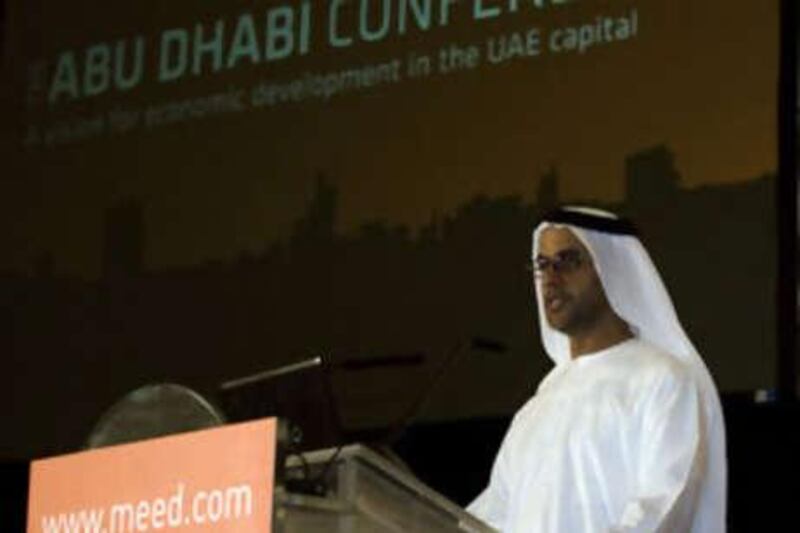The future of Abu Dhabi will be determined by success or failure in four key areas: modernised health and education systems, an efficient public sector and a diversified economy, a top official said yesterday. H E Nasser Ahmed Al Sowaidi, the chairman of the Department of Planning and Economy (DPE), said achieving those goals would allow the emirate to integrate into the world economy, which was important now more than ever.
Both Mr Sowaidi and Mohammed Omar Abdulla, the undersecretary at the DPE, said much of Abu Dhabi's future was in the hands of the private sector, both in terms of the delivery of public services and the diversification of the economy. "The economic interests of the world's countries have become so overlapping and interdependent that it's no longer possible for any nation to live and prosper in isolation, irrespective of its capabilities and resources," he said, speaking at the Abu Dhabi Conference, a two-day event organised by the Middle East Economic Digest.
"To set a new course that we can work towards, the Government has articulated a clear vision for the future of the emirate in which Abu Dhabi will remain a confident and secure society within a sustainable, dynamic open economy. "In order to achieve that vision, the Government has identified key priority areas in which significant policy initiatives are driving the changes in the emirate as well as its integration into the global economy." One Government goal would see the public sector restructured to become a regulator of public services rather than a provider. Its workforce has been reduced to 11,000 civil servants, from 65,000 in 2005. As the public sector takes an increasingly marginal role in the practical provision of services, the private sector will step in, although under Government supervision, the DPE said. The DPE will figure strongly in attempts to diversify Abu Dhabi's economy by shifting its heavy reliance on the oil and gas sector, which still represents more than 60 per cent of the emirate's gross domestic product, Mr Sowaidi said. "For Abu Dhabi, diversification means expanding into industries and services in which the emirate already has, or can affordably attain, a competitive advantage," he said. Those opportunities include real estate, tourism, aerospace and logistics. "Abu Dhabi is dedicated to making the most of the globalisation process and is going through fundamental changes in terms of government regulations to favour foreign investment, the development of the private sector and global economic integration," he said. Similar to its strategy in providing public services, the Government will give the private sector a leading role in the economy, Mr Abdulla said. The Government has expanded the capacity of local institutions, such as Zayed University and the UAE University, to modernise education. It has also established partnerships with the Paris-Sorbonne University, New York University and the graduate business school Insead. Sheikh Mohammed bin Zayed, Crown Prince of Abu Dhabi, recently ordered a complete overhaul of Government primary and secondary education to improve what is widely viewed as a failing system. In health care, the emirate recently established compulsory, employer-funded health insurance for Abu Dhabi residents. In addition, the Government is working with other institutions including Johns Hopkins Medicine, Cleveland Clinic and the Imperial College London Diabetes Centre. The Government has said it will now focus on the accessibility of quality healthcare facilities such as hospitals and primary care centres. rditcham@thenational.ae






